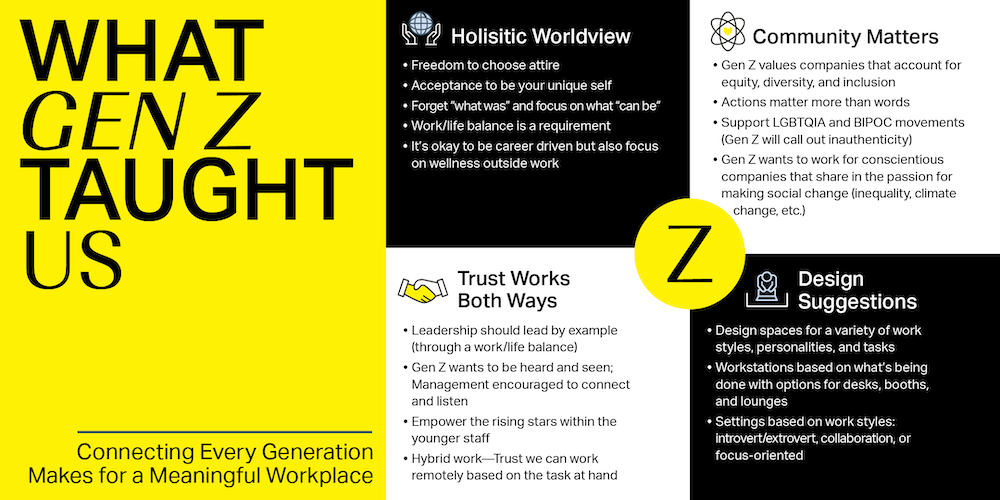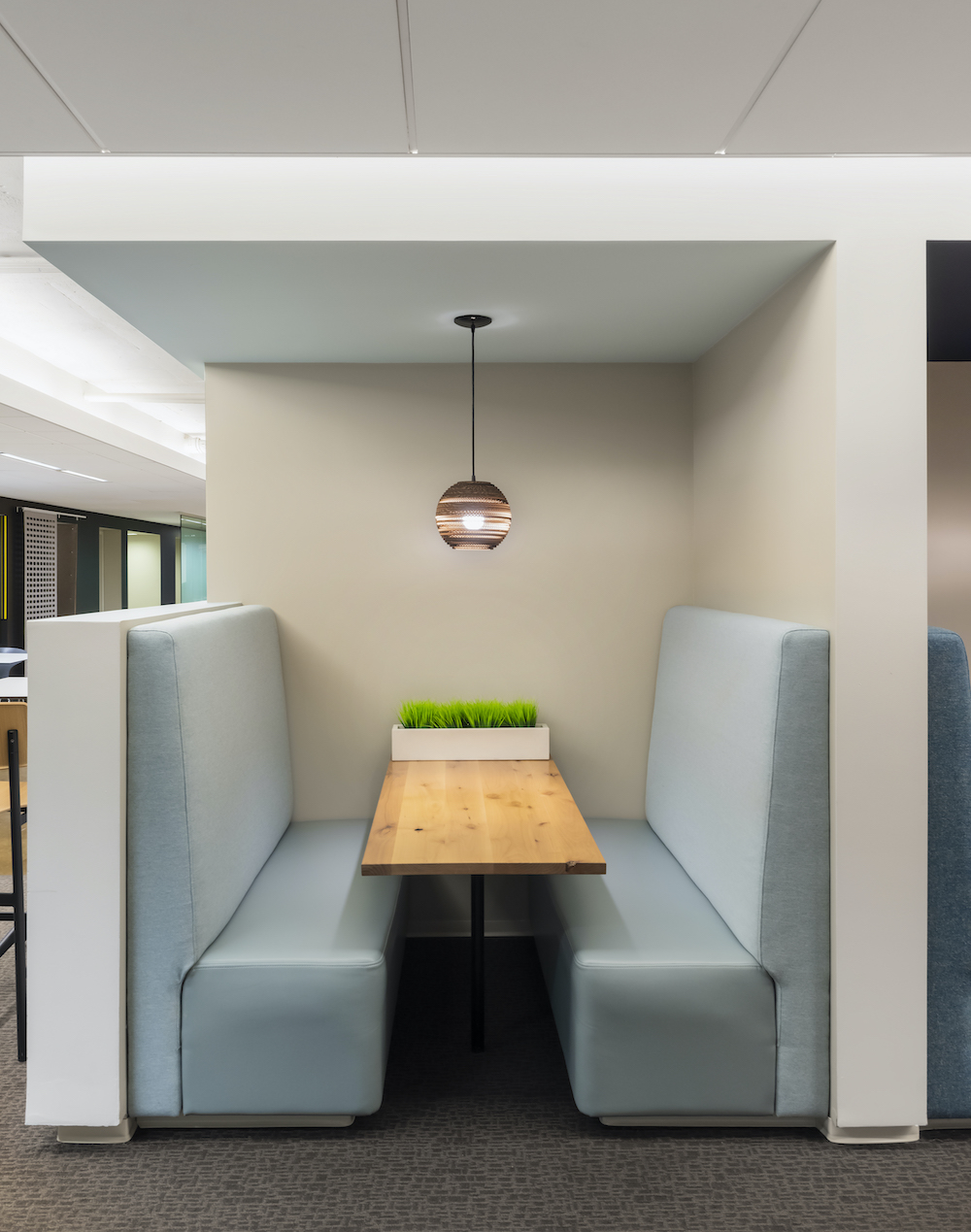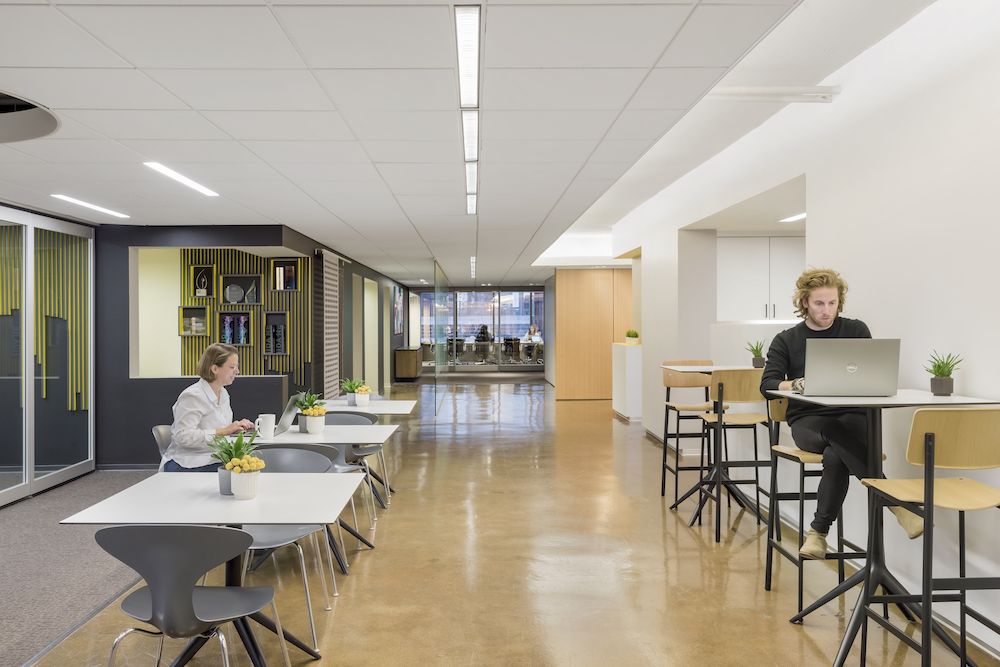Lisa Statkiewicz shares what Bergmeyer learned from a recent open forum with Gen Zer’s on what they value most in the workplace.

This summer Bergmeyer asked Gen Zer’s to participate in an open forum discussion to hear first-hand what they value most in a workplace environment, and why these values motivate them. This format seemed to offer the best platform and most equitable approach to create a safe space that welcomed an honest and transparent town hall-type discussion. With the understanding that everyone’s comfort levels vary significantly in how and where they communicate most effectively, we also provided a digital workspace forum to share thoughts via a Miro board after the town hall if preferred. The following article is a result of these discussions.
There is an abundance of conversation focused around dissecting the ever-growing challenges in effectively bringing Gen Z into the workplace. As the most recent generation coming into the workforce, many companies are strategizing and often struggling to identify ways to effectively connect with arguably the most profiled generation of our time. Gen Zer’s are formally classified as any person born between 1997-2012, making this the first generation to live their entire existence with access or awareness of digital communication platforms like the internet and social media. As such, what is important to them stems predominantly from a heightened awareness of the world around them.

Holistic Worldview
When it comes to what Gen Z is looking for in a workplace, and what they value most, there are unending considerations beyond spatial needs. How corporate culture and policy align with their personal values are no longer a negotiable term of consideration and is weighed heavily as a deciding factor in where they decide to work. They don’t define who they are by just their job, and their lifelong hyper-connection to technology and world views can mean they have a more holistic perception of work-life and personal priorities. When they are in the office, they want spaces and activities where they can simultaneously grow their peer-to-peer relationships, and experience valuable mentorship that supports their professional development. Gen Z values genuine and meaningful friendships with co-workers in and out of the office while allowing them the freedom to be their authentic selves.
Simply put, creating and fostering a culture supportive of authentic connections and work friendships makes for a more inviting environment and desirable workplace.

Community Matters
When Gen X started coming into the workplace… a few decades ago…we adapted to the work environment that existed, going to our desks to take on the task at hand without much hesitation or push back. Graduating before the internet, we relied heavily on our peers and senior leadership to guide and educate us, often only having materials from recently produced work to reference when faced with first-time challenges. If you had a question, you had to know who to talk to, where to look, and be patient for answers.
Gen Z’s experience, however, is considerably antithetical with the technological advancements now reimagining how we approach info sharing, learning, and adapting. They have always had technology (and the world) literally in the palm of their hands. Highly influenced by social media, they see a broad range of views, and a growing number of platforms to speak their minds. I like to think of Gen X and Gen Y (Millennials) as “transitional generations” while Gen Z more fittingly feels fully immersed in our new world of communicating and info sharing. In many ways, the often-misunderstood generation reminds us of the aspirations we hoped to achieve upon graduating, if we had had the opportunity. They objectively co-exist in a world where many previous generations in leadership have spent their careers fighting for similar values, and in many instances have been the driving force for meaningful and equitable change for future generations like theirs to experience.
If we pause and listen to what matters to Gen Z, there is great potential to find common ground and align the generations within an organization through more forward-thinking business goals, while learning from each other in the process.

Trust Works Both Ways
Through our discussions and open forum, we had remarkably candid conversations. Our Gen Z staff particularly loved that we were truly interested in hearing what mattered to them… and almost all attended IN PERSON (not via a survey or other technology-based format). The most insightful takeaway in these sessions came from their tenacity to have these conversations in person – a particularly prominent point which was repeatedly expressed in reference to why they decide to work for a company like Bergmeyer.
It is abundantly clear that hybrid work isn’t “the future” workplace for Gen Z, it just IS. Many are joining the workforce after attending a large portion of their college education remotely. They often began their professional careers entering the workforce in a world where working remotely was, and most certainly can be, the norm for how we work, but that isn’t saying Gen Z doesn’t see the value in, or have the yearning to, work in office – they most certainly do – if balanced. And with a generation like theirs with such keen self-awareness in prioritizing their mental health and wellness, hybrid work allows for more opportunity to maintain a healthy work/life balance.
To create a safe and inclusive workspace worthy of the future generation’s attendance, businesses need to adopt a policy that welcomes both the expectation of being in the office for purposeful connections and the opportunity to develop friendships while having trust in place to allow workers the flexibility and autonomy to work remotely when needed.

Space Considerations
In our discussions, having diverse and flexible workspaces that allow adaptability for specific work needs as they change from day-to-day was expressed unanimously as a valuable factor for where they choose to work. Our Gen Z group also wanted a desk that is all their own, a home base where their things can live permanently. They appreciate the collaborative environment of an open workspace but prefer it with visual privacy to allow for focus if needed. They desire diversified workspace options that accommodate a variety of work styles and task needs for both individual and team-focused efforts. At home, in the office, at their desk, in a booth or with coffee in the lounge – because that is, after all, how many of us have been working for the past couple of years; In many different settings, all dependent on what our task at hand may be. Regardless of whether you are Gen X or Gen Z, these options can work for anyone.
What Gen Z has taught us is the importance of open dialog, mutual respect, willingness to trust, and a community of support can unify us all. They want to work with people that trust them to decide which work environment is the best space for them to deliver exceptional results based on the task at hand. And senior leadership that walk the walk. If we continue to acknowledge the importance of being heard in the workplace and practice actively listening with every conversation we have; we can discover there are more shared commonalities cross-generationally than we think.


